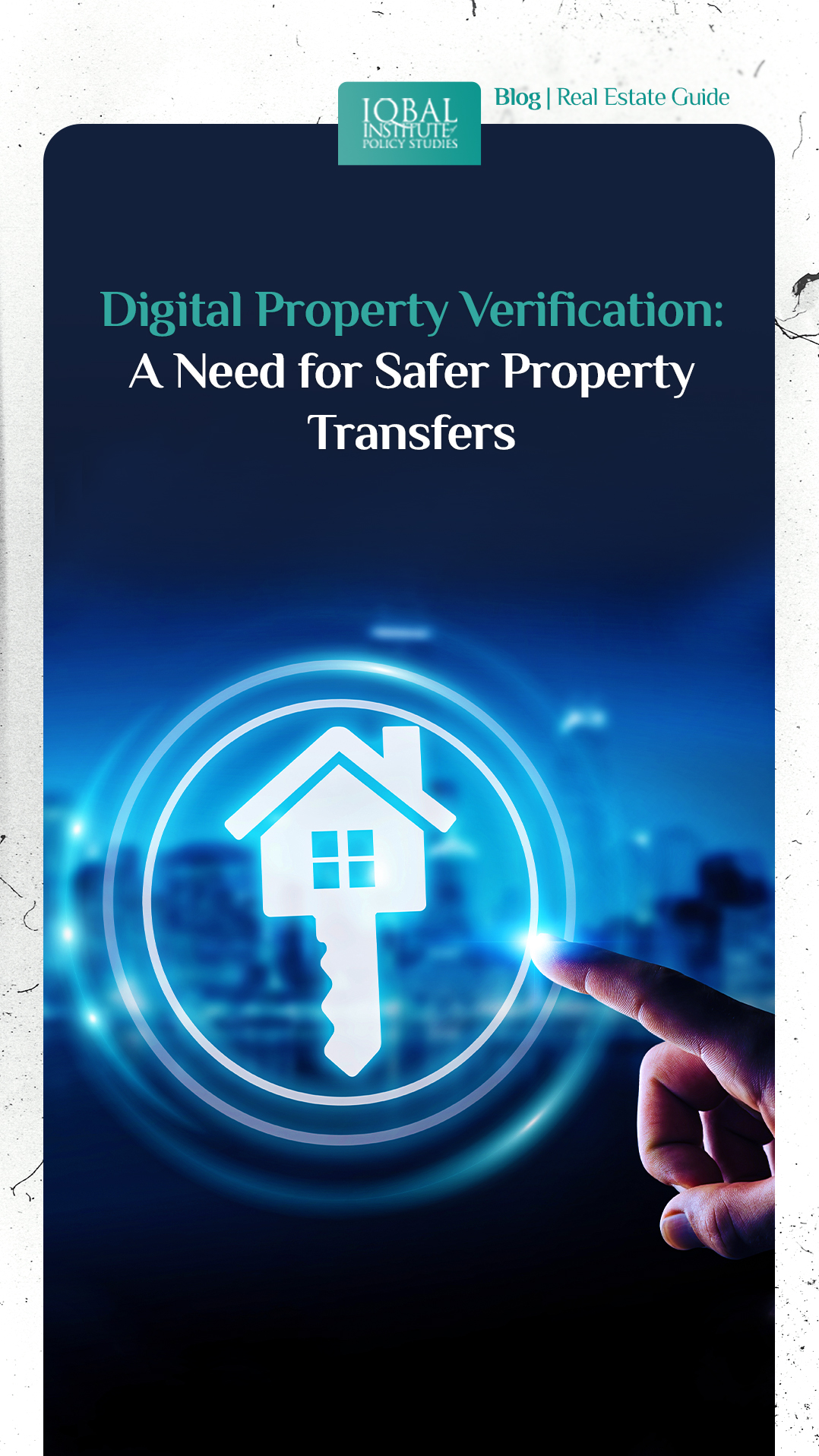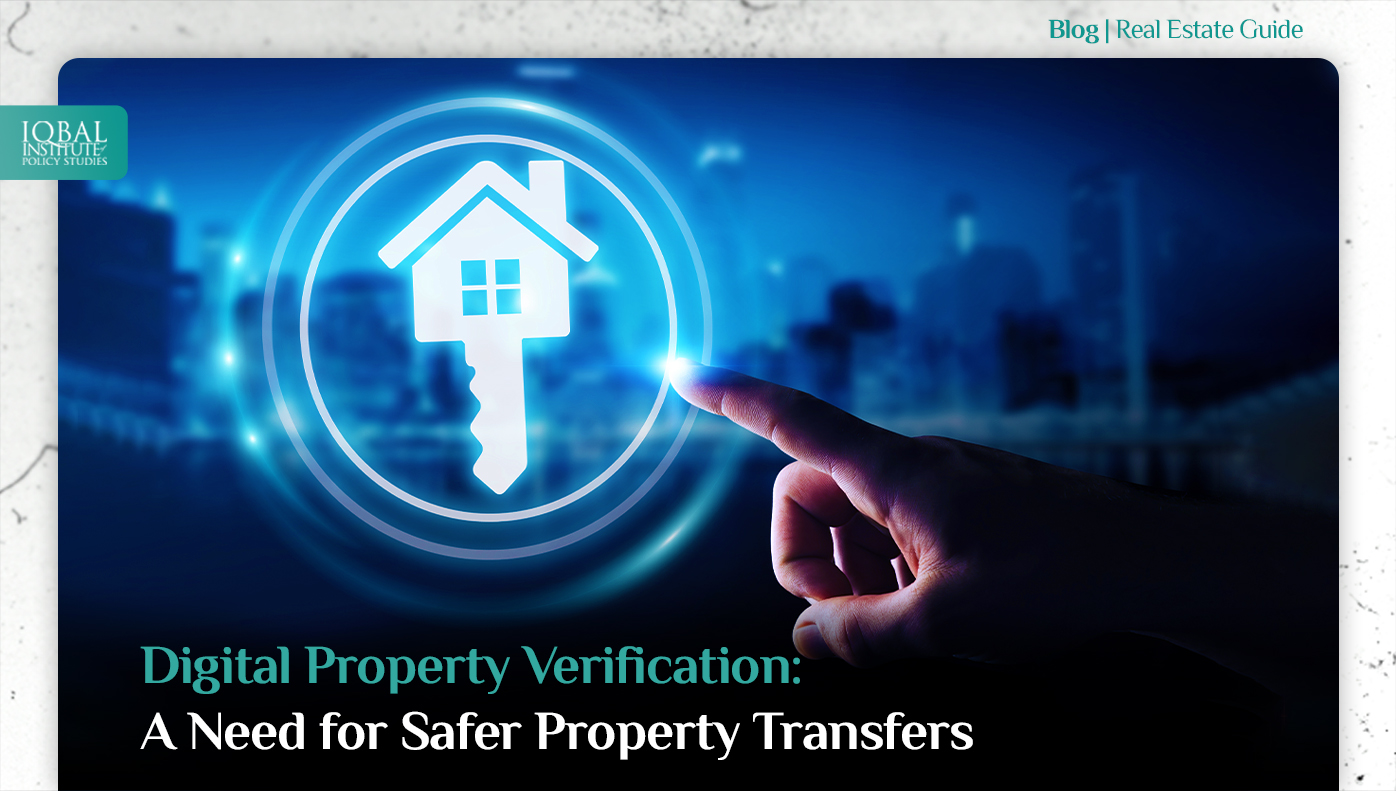The advent of digitisation has revolutionised the core values of the real estate industry through fast-paced technologies like proptech, contech and fintech. The real estate industry is the backbone of a country’s economic growth. According to a report by Mckinsey and Company, almost two-thirds of the entire global wealth is stored in the real estate sector. From 2000 to 2020, the industry has seen a growth of 350 trillion dollars, an increase from $150 trillion to $500 trillion. With a thriving real estate industry, real estate assets contribute 60 to 70 % of the country’s total wealth. After agriculture, the real estate sector is considered the second largest sector in Pakistan’s economy, generating employment through more than 40 allied industries. The sector is also linked to 200 small industries contributing 25-30% to the country’s Gross Domestic Product (GDP). Moreover, construction and asset management are important aspects of the real estate sector. Despite its importance, the sector faces significant property verification and transparency challenges that have badly impacted the sector’s potential. According to the estimated figures by CDA, Islamabad has approximately 64 authorised housing societies and around 140 illegal housing societies. A lack of a Digital Property Verification System has made the investors vulnerable to the pervasive malpractices in the real estate sector.
This article by the Iqbal Institute of Policy Studies will discuss the need for a Digital Property Verification System in Pakistan for safer property transfers.
Significant Challenges of Real Estate Sector:
Being one of the most lucrative sectors of the country’s economy, the real estate industry is dealing with many challenges like problems in the property verification process, forgery of documents and approvals, lack of access to information, and other malpractices. However, one of the significant problems the sector is experiencing is the mushroom growth of illegal housing societies and the challenge of capital traps for local and foreign investors. Around 5000 societies were identified as illegal in 2018 in Pakistan (PropSure OPVS, 2018). People have also lost a colossal amount of about Rs 5200 billion trapped in unlawful housing schemes in Islamabad alone. These housing schemes lack proper land ownership documents and necessary approvals required for development, such as the No-Objection Certificates (NOCs). Malpractices like getting approval for a fraction of the project and selling properties beyond the approved area have also increased.
Overseas, Pakistanis contribute significantly to the country’s economy, sending many remittances yearly. Around 10 million overseas Pakistanis living around the globe send about $30 billion to Pakistan every year, with the maximum share being invested in the real estate sector. Due to complicated and non-transparent processes prevalent in this sector, all these issues have made real estate transactions vulnerable to fraud and malpractices.
Need For a Digital Property Verification System:
Inspecting and verifying property is the foremost step of each real estate transaction. Manual property inspection is highly impractical due to busy schedules and everyday commitments. The investors used to skip this step to save time and depend only on the information provided by their respective ‘property dealers’. The Property Dealers, in turn, exploit the investors’ callowness and speed up the transaction without even confirming the legal status of the land or project. Thus, this practice has increased the fraction of investments stuck in the ‘capital trap’. Therefore, Property Verification is critical to avoid fraudulent transactions. Investors must keep a checklist of mandatory documents such as Title Deed (confirms the title of the property), Approved Plan of Property (especially relevant with Housing Societies), Property Tax Receipts, NOCs, Sale Agreement, Sale Deed (required during transfer of property), and Special Power of Attorney etc.
The vast list of documents mandated to affirm the integrity of the land or real estate project makes the procedure time-consuming. Moreover, to secure the documents for due diligence, one has to be physically present in a particular geographical region. This escalates the additional costs of acquiring documents for the particular investment opportunity. Furthermore, in the case of the Pakistani Diaspora, the Special Power of Attorney is mandated to complete the Transfer of Property in Islamabad, which delays the process. The availability of Special Power of Attorney depends on the laws of the country of residence. The investors move for a quick and easy way to inject their capital into the real estate economy resulting in capital traps. Therefore, a Digital Property Verification System is paramount to safe and secure transactions.
DPVS: Ensuring Safer Property Transfers
Through disruptive technologies, the digitisation of real estate has made access to information easier. Investors now depend on digitised data to conduct due diligence on the property before closing the transaction. The world is progressively becoming paper-free, and access to digital information is readily available. In this context, the Digital Property Verification System (DPVS) is vital for mitigating and eliminating the risks associated with fraudulent property transactions. Such a system is critical to promoting transparency, restoring investors’ confidence in real estate transactions, and ensuring capital influx into the economy. A Digital Property Verification System provides quick access to information for the investors and reduces additional investment costs. A Digital Database eliminates the third parties, i.e. brokers, from the real estate transactions and reduces the incidents of malpractices or fraudulent transactions. A Digital Property Verification System also removes the practice of bribery, which is prevalent in forging the land documents for financial crimes and botch transactions. Similarly, to avoid the hassle of the manual property party verification process in Pakistan, PropSure Digital Solutions became the pioneer by introducing the DPV system, which covers various attributes related to a property. The system includes the Layout Plan, Approval status, competent authority to acquire approvals, complete property address, Layout Plan (LOP) approval status, total area (sq. Yds), and the type of land use permitted in the approved layout plan. The manual access to this information is strenuous and time-consuming, discouraging the investors from verifying property before the transaction. People always want rapid and easy solutions to problems; the DPVS is one solution to property verification and inspection problems for safe and secure transactions.
Wrap Up
The digitisation of the real estate sector has introduced new technologies to resolve these problems. A Digital Property Verification System by PropSure Digital Solutions provides digital access to information about a property before entering a transaction. The system ensures that investors know the due diligence requirements of real estate transactions. It helps eliminate the influence of Brokers and Property Dealers involved in bribery and sham transactions. DPVS is revolutionising the real estate sector by enabling investors across the globe to verify their property online. This revolutionary step has been made available in Pakistan for the first time by using disruptive technologies to map real properties digitally.






Leave a Reply